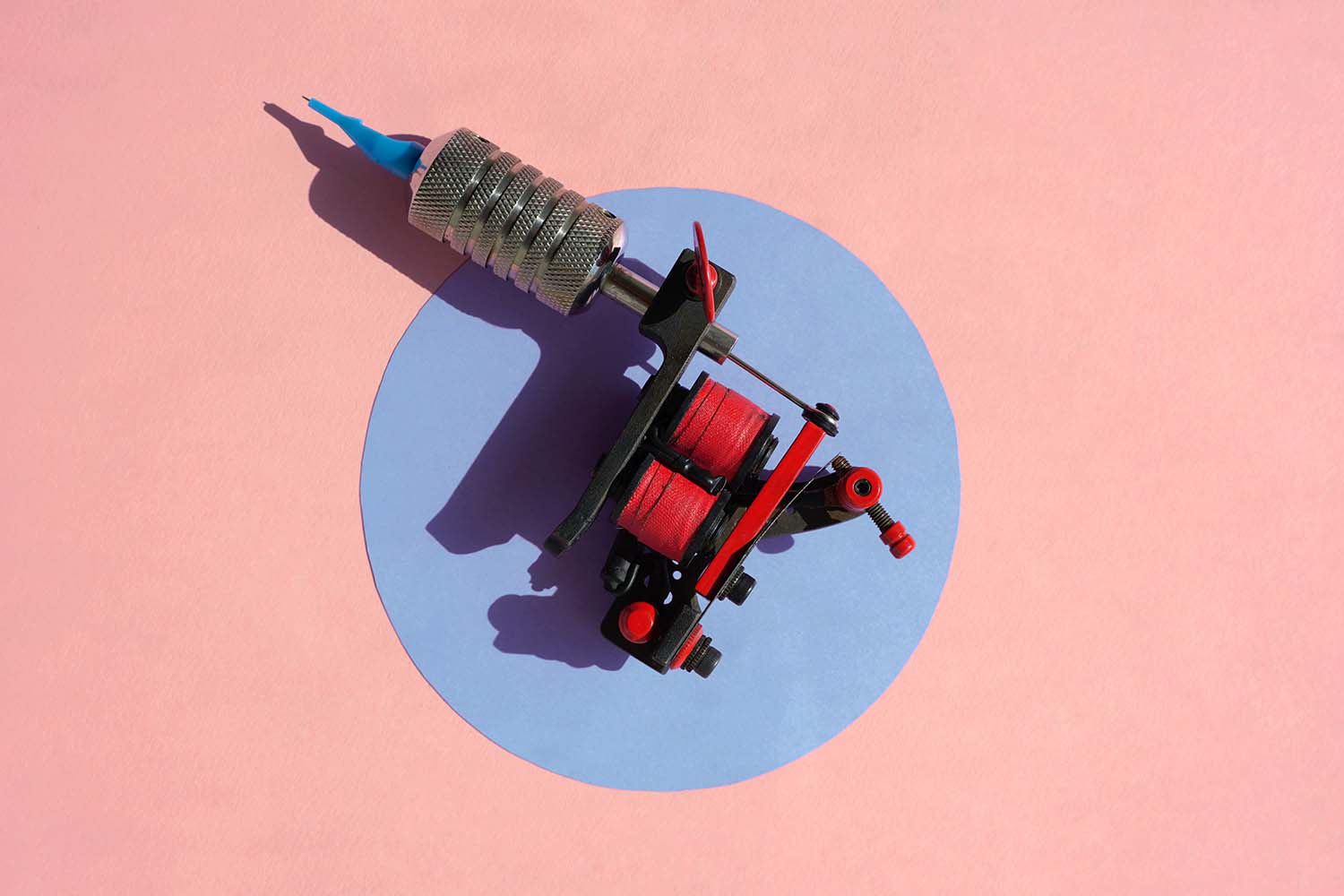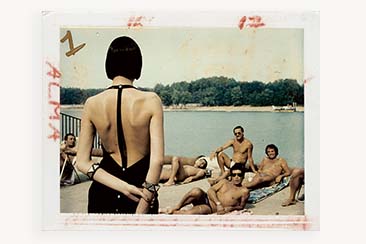The tools an artist uses can be just as important as the nurtured talent and training. When tattooing, the skin becomes the canvas, and for a tattoo artist, the machine used is as important as the painter’s brushes. A tattoo machine is going to permanently mark a real person’s body. Just like a painter has a preference for specific brushes, a tattoo artist needs their machines built to precise specifications. Defiance Manufacturing offers both pre-assembled and custom build machines to professional tattoo artists; here they explain a little about what’s involved in buying a tattoo machine.
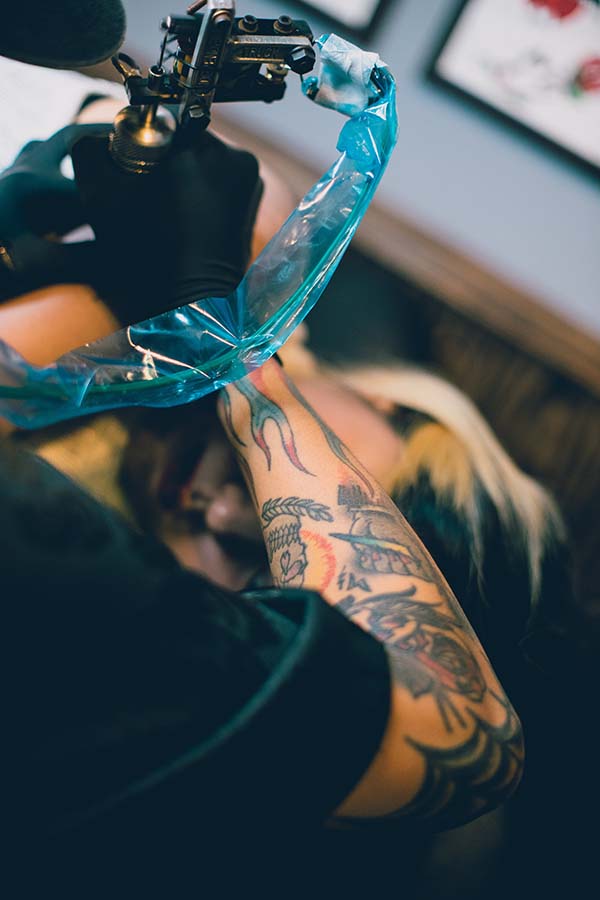
Photo, Andrew Leu.
Canvas: For a tattoo artist, every canvas is going to be different. A painter can use different canvases or paper to achieve the desired result bought or made for that specific purpose. A tattoo artist doesn’t have that option. With walk-in clients, they may have only met and examined that person’s skin a few minutes before getting to work. A wash on a paper further alters it, adding grooves to work into the painting. A tattoo artist’s canvas already comes with grooves and bumps to work around or incorporate. A tattoo artist needs as much confidence in their machine as they do in their ability to work with such a variety of canvases.
Lingo: Terminology is important. Tattoo guns sound like a current inmate is doing the tattoo. A tattoo gun is a piece of equipment used by an amateur, even though the only difference is the word. The word becomes very important when buying a tattoo machine. Using the word doesn’t sound professional to clients, so don’t buy a tattoo gun, buy a machine. The tattoo artist needs to rinse the words tattoo gun from their vocabulary. A tattoo gun sounds like it was constructed out of spare parts in someone’s basement. If someone with some mechanical know-how built it in their garage, it still wouldn’t be up to standard.
In short: Don’t buy from someone trying to sell a tattoo gun. It may not have been tested to the suitable requirements.
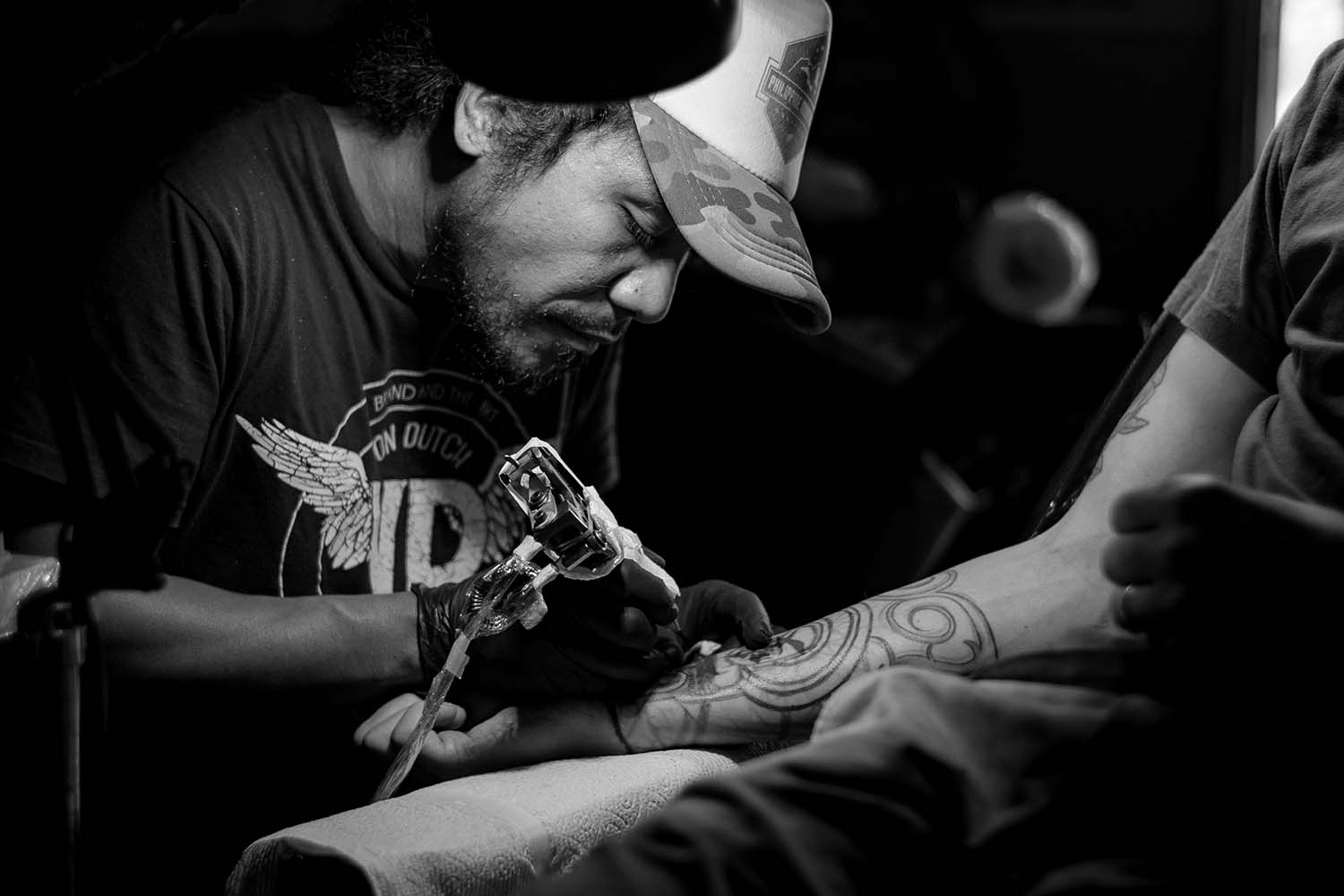
Photo, Kristian Angelo.
Sales Policies: Before investing in a piece of equipment that is as important as an artist’s ability, it is a good idea to read the policies. Some people have far too much time on their hands. Combine this with too much money and growing up being told they can do anything, and they just might try to buy a tattoo machine. Inflated confidence and money don’t make someone a tattoo artist. A company selling high-quality equipment is only going to sell to professional tattoo artists. They’re going to require proof.
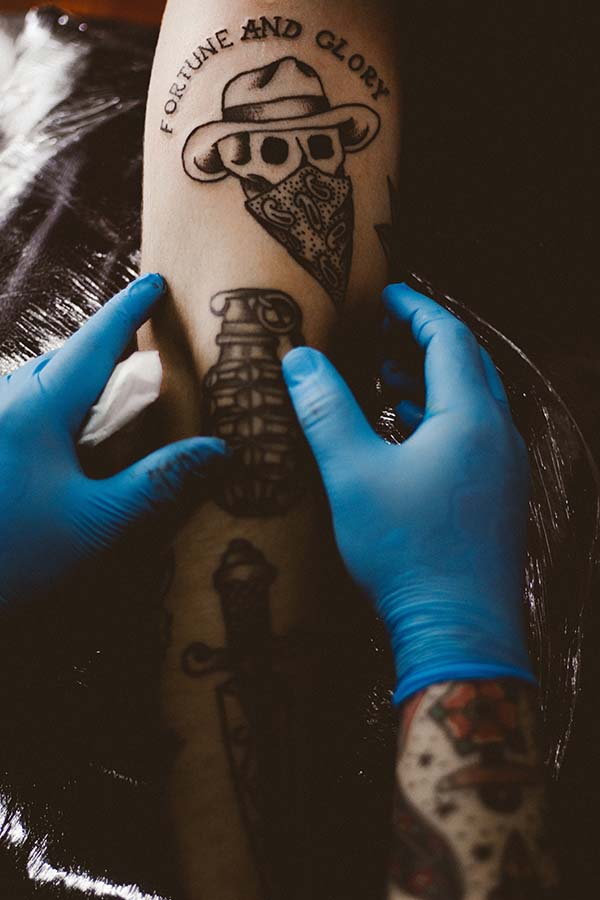
Photo, Allef Vinicius.
Custom Machines: As a tattoo artist gains experience in the industry and gets to know the machines, they’ll want a custom machine. A custom tattoo machine is a big purchase. The person building the machine will need to speak to the person the machine is for. Having a custom tattoo machine built takes time. A rush job without clear communication is a clear indicator that the machine isn’t high quality.
The maker should know about different types of ink and different ways of injecting them beneath someone’s skin. They don’t need to know the full history of tattooing, but knowing a bit about the history of tattoo machines should show up in conversation. Much like a person seeking a tattoo will ask to look at the portfolio of the artist, the builder should be able to talk about previous custom builds.
Pre-assembled Tattoo Machines: Quality shouldn’t be sacrificed just because the artist is using a pre-made tattoo machine. Someone investing in a tattoo machine should already have industry experience and know what they’re looking for. Swapping the drawing tablet for a tattoo machine isn’t as easy as trading paintbrushes and canvas for charcoal and paper. A graphic designer switching professions will need real experience on real customers in a real tattoo studio before buying their first machine. They should know what they like and don’t like about the studio’s machines.
Pre-assembled machines should come with a list of specifications. A tattoo artist should know what they want and what type of machine is most appropriate to their style.
Cleaning: Hygiene is a major factor in tattoo studios. Anywhere the body fluids can leak is going to need strict hygiene practices. Customers at the very least will want to look around before the needle goes anywhere near their skin. Dirty tattoo studios spread disease. A tattoo machine should be easy to sterilise.
A tattoo artist is reliant upon their machine. The wrong machine can permanently scar a customer even in the best of hands.
